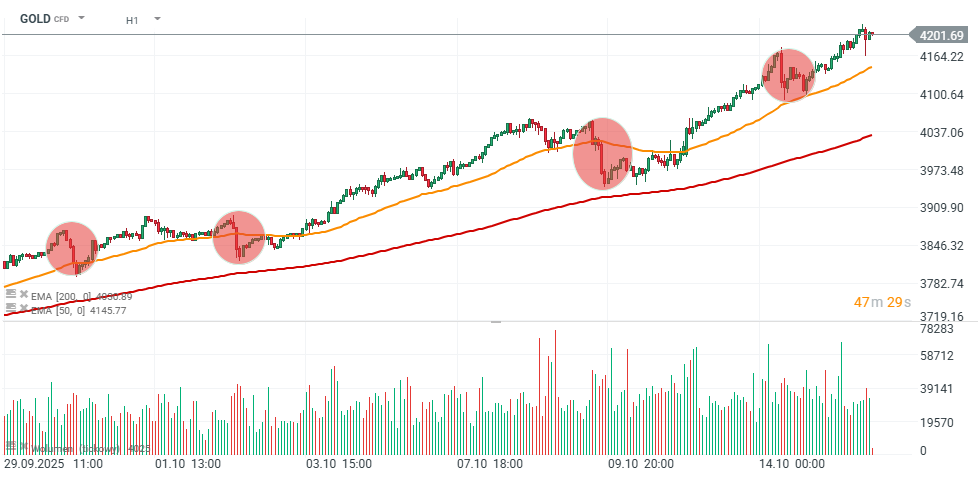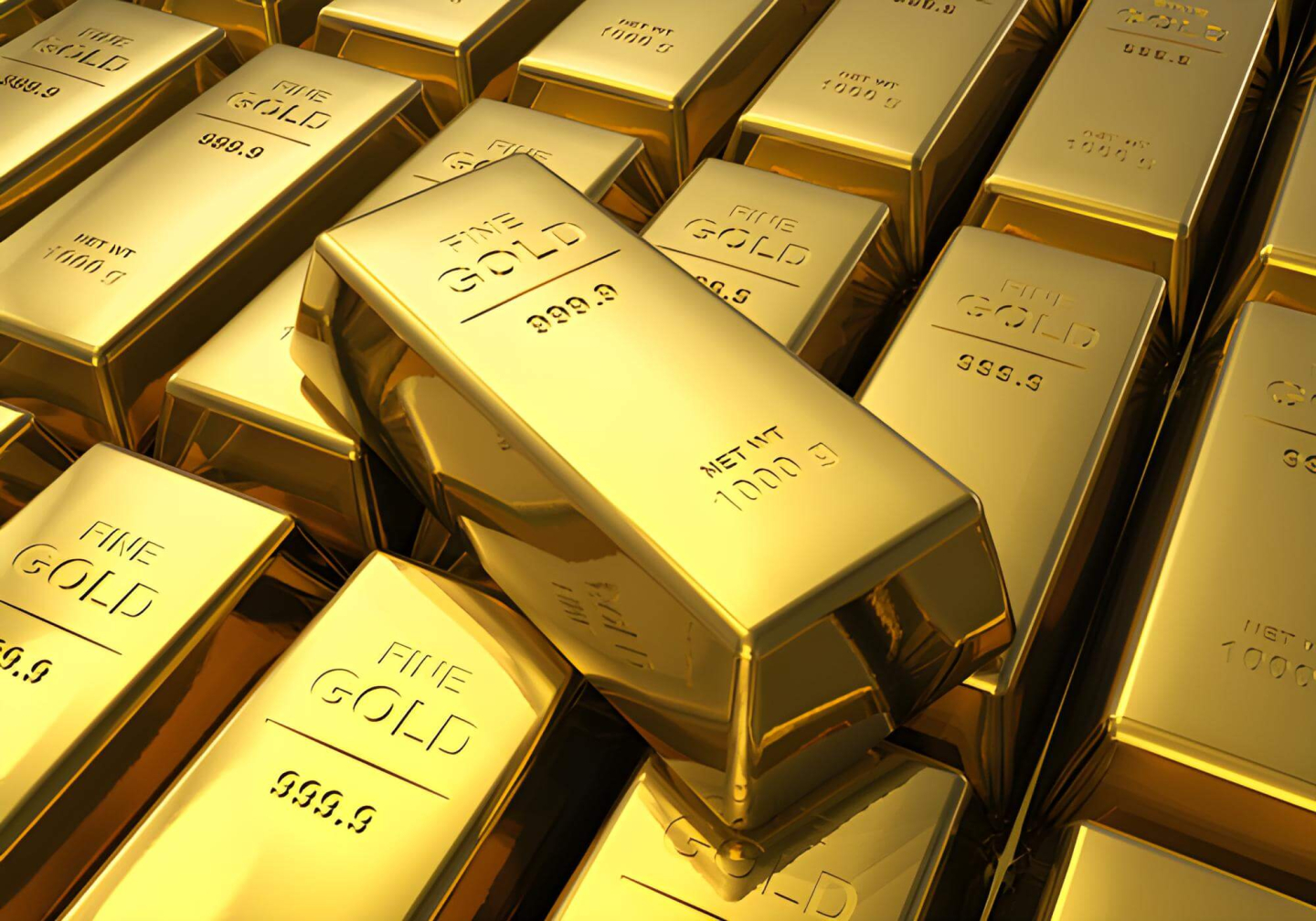-
Gold continues to climb above $4,200 per ounce, driven by expectations of a shift in Federal Reserve policy.
-
Silver has surged past $52 per ounce, extending its strong upward momentum.
-
The U.S. labor market is showing increasing signs of weakness.
-
Fed officials are signaling the possibility of interest rate cuts in the near future
-
Gold continues to climb above $4,200 per ounce, driven by expectations of a shift in Federal Reserve policy.
-
Silver has surged past $52 per ounce, extending its strong upward momentum.
-
The U.S. labor market is showing increasing signs of weakness.
-
Fed officials are signaling the possibility of interest rate cuts in the near future
Precious metals, including gold, are rising sharply today, extending the ongoing rally. Gold is climbing above $4,200, rebounding relatively quickly after a brief correction that tested the $4,100 level. Currently, the key support levels are $4,100 and $4,160 per ounce, as defined by price action. In October, the Fed is expected to cut rates by another 25 basis points. Metal availability in the London market remains tight, while spot demand is very strong.
Investors are increasingly viewing precious metals as a hedge against currency devaluation and the consequences of growing budget deficits — a phenomenon referred to as the “debasement trade.”
- In the case of silver as well, the market has been gripped by a liquidity squeeze in London, which has driven up benchmark prices that now exceed New York futures. The gap between the two markets is about $1 per ounce, while the annualized cost of borrowing silver (on a monthly basis) stood at approximately 17% on Tuesday — both historically elevated levels.
- Traders are also awaiting the results of the U.S. administration’s so-called Section 232 investigation into critical minerals, which includes silver, platinum, and palladium. This inquiry has raised concerns that these metals could be subjected to new tariffs, even though they were officially exempted in April.
The four major precious metals have posted impressive gains this year — ranging from 60% to 82% — becoming the leaders of the commodity market rally. The key drivers behind gold’s price surge include central bank purchases, rising investor exposure to ETFs, and interest rate cuts by the Federal Reserve.
Spot demand for so-called “safe haven” assets has been further fuelled by:
-
escalating trade tensions between the U.S. and China,
-
concerns over the Federal Reserve’s independence,
-
and the risk of another U.S. government shutdown.
A major driving force behind the rally remains aggressive gold buying by central banks, which are acquiring large volumes of the metal amid a weakening U.S. dollar and falling bond yields. Concerns about rising debt, lower interest rates from the Fed and ECB, and geopolitical risks are prompting investors to treat gold as a reliable store of value. The Fed is set to decide on interest rates on October 29 and is likely to cut them by 25 basis points — as also hinted by recent comments from Federal Reserve official Susan Collins.
GOLD (H1 Timeframe)
Gold has experienced a few minor corrections, but the uptrend that began in early October remains dominant.

Source: xStation5
Gold's Performance Over Time
Historically, October hasn’t been particularly favorable for gold prices. However, in 2022, the metal’s price rose by over 8%. So far, since October 1, gold has gained around 9%, climbing from $3,850 to its current level per ounce.

Source: XTB Research, Bloomberg Finance

Daily summary: Weak US data drags markets down, precious metals under pressure again!

US Open: Wall Street rises despite weak retail sales

Coca-Cola Earnings: Will the New CEO Withstand the Pressure?

BREAKING: US RETAIL SALES BELOW EXPECTATIONS


